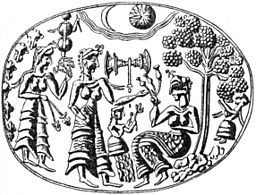Caterina Mastroianni is an Italian born Australian poet and educator who grew up in Port Kembla and Wollongong, on the land of the Wadi Wadi people of the Dharawal nation. She has published poetry in various literary magazines and four Australian anthologies, most recently in Live Encounters Poetry and Writing Journal (January 2022) and in Poetry for the Planet: An Anthology of Imagined Futures (Litoria Press, 2021). Her work also appears on the Medium platform where the poem With hope, minutely was selected as one of the best poems in January 2020. She has loved travelling and living overseas, highlights including in Calabria and in Rome, Italy for her heritage; in Istanbul, Turkey teaching English; in Buenos Aires, Argentina to connect with relatives and a new language; in Khuruthang, Bhutan as a volunteer teacher for the Bhutan-Canada Foundation. She lives in Sydney on the land of the Cadigal and Wangal people of the Eora nation with Mike Buick, a collage assemblage artist and art technician and their cute cat.
Maps and mirrors
I circle the blue sea in the middle of the European earth and wait
like a summer-olive half-fish preening and pining for her original habitat
I fall into a series of dropped pins, flatness inflames starry dreams
postcards of rivers, mountains, ports, cities, villages form upwards
I trace where I’ll go and go where I’ve been, raise ambrosial tastes
and kairic moments on fire to regenerate my heart’s navigation
Am I leaving or returning? Cycles of returning and leaving
does and undoes me like a flowering fish in and out of seasoned waters
I see you everywhere, a zia or tio, a cugina, philos or arkadaş
welcomes and separations sit and drink together like old friends
hospitality, the diplomacy of returning, lifts energy, defeats doubt
new and resurrected languages discover extra friends, open longings
I dive into your sea-body, in the mirror of my Mediterranean genes
commingling coast to coast from Magna Graecia across to the Ottomans
Who am I in the Mediterranean? How far back, how far forward can I see
the gods and goddesses of the sea ushering and crashing us in and out of here?
kairic – ancient Greek is a “right or opportune moment”, is “a passing instant
when an opening appears which must be driven through with force if success
is to be achieved.”
(E. C. White, Kaironomia p. 13)
She speaks from the gold signet ring
Come to me three times under the olive tree
to your goddess, your arche-woman-mater
I am you, little girl
I am you, young woman
I am you, older woman
I am the others who follow
I am child-full, childfree, childless
I do not judge for all that I am is in all of you.
I touch the questions in your crocus offerings
Where will I go?
What will I do?
Who am I to be with?
I bless you with poppies from my strong arms
I gaze directly at you with my beautiful eyes
Look, listen, I give what you must learn
See the tree behind me
you must tend and grow a tree for life
for every tree will become your sacred tree.
See the olives the girl picks
harvest the good that will oil your life
for it will beget good all around you.
See the breast I hold proudly
wear your own body proudly
for its care is in your possession.
See the double axe above me
grab it, use it, chop with it, yield with it
for it is a power you can take into your hands.
See the full sun and crescent moon above me
live under and within its solar and lunar cycles
for they will protect your health, your mind.
Life’s labyrinth leads to one exit
don’t hurry, stay within its paths
choose a journey you are happy with
wear this golden she-amulet per via.
Istanbul Dawn
dawn mosque prayers
and grey skies of jealousy
rise over the Bosphorous
lost watery eyes swim
in rivers of underground kisses
and my gypsy mood fades
from long nights of suspicion
I think of last night
in Turkish music houses
dostum – his Istanbul tires me
and watch Bahariye Caddesi awaken
to fountain pigeons and swarming cars
midday church bells ring
I know what I must do now.
dostum: I am a friend./ mate
Bahariye Caddesi: Bahariye Caddesi is a street in Kadikoy, Istanbul
Poetry in this post: © Caterina Mastroianni
Published with the permission of Caterina Mastroianni


